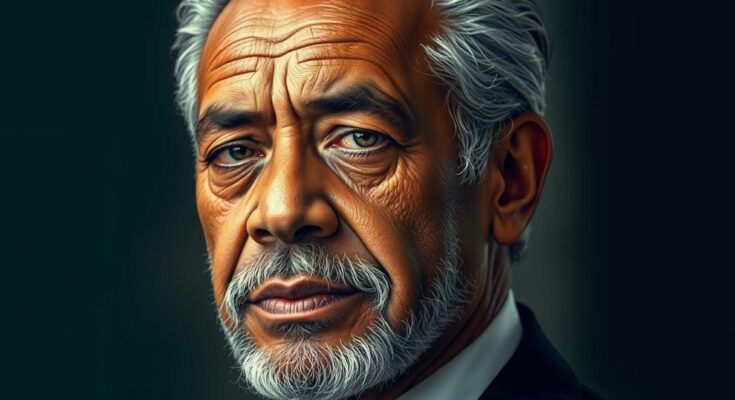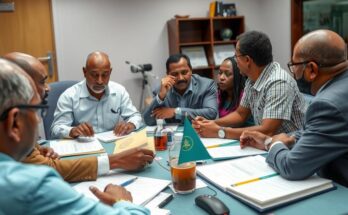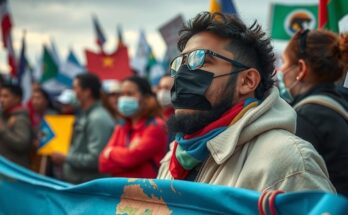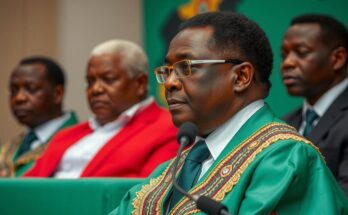Yamandu Orsi has been elected as Uruguay’s president, winning 49.8% of the votes in a recent run-off. He is affiliated with the Broad Front alliance and aims to address poverty and crime through a modern leftist approach. Orsi, a history teacher and former mayor, is seen as a political successor to ex-President Mujica and has emphasized the importance of national dialogue in his governance.
Yamandu Orsi, the recently elected president of Uruguay, represents the Broad Front alliance, securing his position with approximately 49.8 percent of the votes in a tightly contested run-off. His election marks a significant shift back to a center-left government after five years of conservative leadership. Known for his grassroots approach and advocacy for national dialogue, Orsi’s platform focuses on modernizing leftist policies to address significant issues such as homelessness, poverty, and rising crime rates fueled by drug trafficking.
Orsi, who has a background in education as a history teacher and experience as a mayor, is regarded as a political heir to former President Jose Mujica. He emerged from humble beginnings in the rural Canelones department, where his early political consciousness was shaped during a period of dictatorship in Uruguay. His campaign emphasized a balance between social welfare and economic growth, promising to usher in a new era for the Uruguayan people.
While Orsi has pledged to avoid tax increases and instead promote faster economic growth, there has been criticism regarding his vague government plans and a reluctance to engage in media debates. His victory signifies a shift in governance philosophy, yet analysts believe that the overarching economic direction of Uruguay may not experience drastic changes. Similar to Mujica, Orsi is known for his simple lifestyle and intends to abstain from living in the official presidential residence, maintaining a down-to-earth public persona through his casual demeanor and love for traditional customs.
Yamandu Orsi’s ascent to the presidency of Uruguay marks a notable event within the nation’s political landscape, transitioning from a center-right government back to a center-left leadership under the Broad Front alliance. His election unfolds during a period characterized by rising crime rates, particularly related to drug trafficking, as well as ongoing issues with poverty despite improvements post-COVID-19. Orsi’s background as a teacher and former mayor equips him with insights into social issues that resonate with the electorate, while his relationship with ex-President Mujica positions him as a leader seeking to promote inclusivity and dialogue in governance.
In conclusion, Yamandu Orsi’s presidency represents a rekindling of center-left values in Uruguay, promising to address pressing social issues with a modern approach. Orsi’s commitment to national dialogue and his strategic plans for balancing social welfare with economic growth could shape Uruguay’s political future. While maintaining a modest lifestyle akin to that of his predecessor, he is expected to navigate the challenges of rising crime and poverty, striving to fulfill the aspirations of his constituents.
Original Source: www.aljazeera.com




